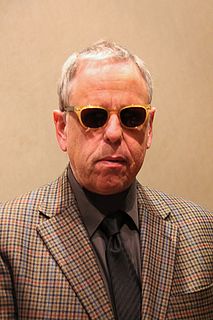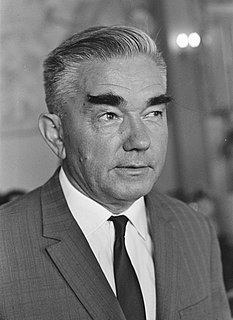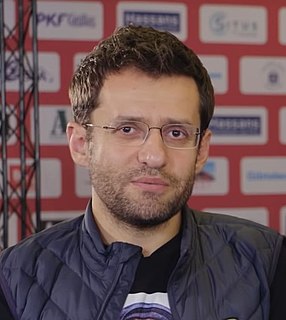A Quote by Jeff Nichols
My characters aren't chess pieces. I don't move them around some big board. I actually care about these fictitious people.
Quote Topics
Related Quotes
I don't think I have a favorite chess move, other than checkmate, because each move is part of a combination of other moves. Just like I don't have a favorite piece, because they all work together. I mean, I love myself; I am the king on the board, but other pieces do different things and they all work together, so it's not one particular move unless it's checkmate because usually there's an answer. You know, chess is about questions and answers.
We are all part of a universal game. Returning to our essence while living in the world is the object of the game. The earth is the game board, and we are the pieces on the board. We move around and around until we remember who we really are, and then we can be taken off the board. At that point, we are no longer the game-piece, but the player; we've won the game.
I've never written a fiction before about real people. . . . I read everything that I could find by people who met them and tried to get some impression of them, but as always when you write fiction, even if you have completely fictitious characters, you start by thinking of what is plausible, what would they say, what would they be likely to do, what would they be likely to think. At some point, if it is every going to come to life, the characters seem to take over and start speaking themselves, and it happened with [COPENHAGEN].
I'm a big believer in you make your argument to everybody, and you do it in a way that is real and very candid. Even if people don't agree with you, they appreciate that you're telling them what you believe and they know that you care about them. That's I think a very important part of it that sometimes gets missed, is that people will be OK with you saying something they're not totally on-board with as long as they know that you believe it because you want to help them. That means you've got to care about everybody.
I love chess, and I didn't invent Fischerandom chess to destroy chess. I invented Fischerandom chess to keep chess going. Because I consider the old chess is dying, it really is dead. A lot of people have come up with other rules of chess-type games, with 10x8 boards, new pieces, and all kinds of things. I'm really not interested in that. I want to keep the old chess flavor. I want to keep the old chess game. But just making a change so the starting positions are mixed, so it's not degenerated down to memorisation and prearrangement like it is today.
You couple that with how I looked when I was younger, and growing up... The voice is not quite breaking. It's awful. No, I don't enjoy that at all. But that's one of the things people love and find so endearing about the Harry Potter series, and why they've lasted so long. Because people have grown up with us, and they care about the characters. They're not just some characters in the film, they're people you can relate to, and you care about, and you grew up with, and when they die in this film, people feel it!




































